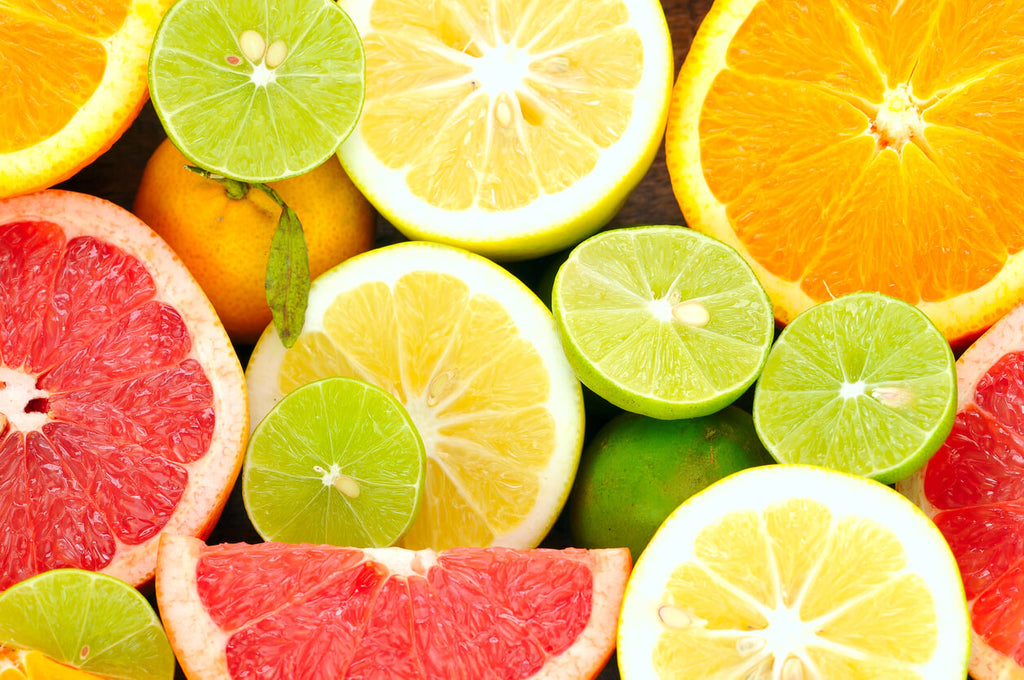Who needs bioflavonoids?
9th May 2018 / Health
Who needs bioflavonoids?
Bold Commerce Collaborator

Many people will have heard of bioflavonoids and have a vague awareness of them being good to their health, without knowing exactly what it is that they do. Bioflavonoids are naturally occurring substances in plants best known for their antioxidant ability; they work in symbiosis with vitamins to neutralise free radicals in the body. Bioflavonoids are more than just antioxidants too; they have been shown to exhibit anti-inflammatory, antithrombogenic, antidiabetic, anticancer and neuroprotective properties.
As a general rule, the more colourful a food is, the higher its bioflavonoid component. Bioflavonoids come in four main types;
Types of bioflavonoids
- Proanthocyanidins (PCO’s) – Most commonly found in red wine
- Citrus – Bioflavonoids found in citrus fruits
- Green Tea Polyphenols – Derived from the camellia sinensis tea plant
- Quercetin – A ‘support’ antioxidant that serves as a backbone for other types of flavonoids
Benefits of bioflavonoids
Bioflavonoids are well studied and a number of important benefits have been highlighted. One of the most significant is their ability to lower an individual's risk of heart disease. One meta analysis of 14 studies showed that the risk of cardiovascular issues decreased as bioflavonoid intake increased. Given the prevalence of heart disease in the developed world, having an accessible means of helping our hearts through diet is extremely important.
Another benefit of bioflavonoids is improved microvascular blood flow and improved venous function. This can be seen in a lessened incidence of bruising. Bruising is unproblematic for most, but some people are particularly susceptible to bruising, and see their bruises take a long time to resolve. These people may benefit from increased vitamin C and bioflavonoids in their diet. In a clinical setting, people with a bruising condition given 1000mg of vitamin C and 100mg of a flavonoid per day for four weeks saw drastically reduced bruising during the treatment and in the 3 month period after it ended.
Improved venous function can also lead to a reduction in symptoms like restless legs, night cramps, and tired feeling legs.
Another bioflavonoid, quercetin, threatens to put cosmetics companies out of business. As we age, and skin cells stop replicating as quickly as they once did, the skin begins to lose elasticity and develop wrinkles. One study showed that quercetin has the ability to increase the production of collagen, helping to maintain healthy, glowing skin as we age. The phrase ‘you are what you eat’ is true insofar as your skin is only as strong as the building blocks you provide it with.
Getting enough bioflavonoids
Making sure you get enough dietary bioflavonoids can be tricky. One of the best ways to ensure a high intake of flavonoids is to eat a diet widely varied in colour. Strawberries, bell peppers, broccoli, spinach and citrus fruits are all good sources. In fact, most plant sources of vitamin C will also contain some bioflavonoids, as the two usually occur together and enhance the effectiveness of each other.
This is where Food Based supplements just make sense. Synthetic supplement makers would need to add bioflavonoids to their vitamin C if they want to attempt to unlock the synergistic relationship between the two. The Food Based process on the other hand produces bioflavonoids as a by-product of the vitamin growing process. Just like in nature. This means all Food Based products containing vitamin C also contain bioflavonoids as a convenient extra.
From The Blog
-

25th February 2025 / Health
Empowering Women’s Health: Key Supplements for Well-being
Women’s health is a lifelong journey, with each stage presenting unique nutritional and wellness needs. From maintaining energy levels to supporting hormonal balance and bone health, the right comb...
Read article -

17th February 2025 / Health
Empowering Women’s Health: Lifestyle Tips and a Key Supplement for Perimenopause and Menopause
NaomiWomen’s health evolves through various life stages, and the transition into perimenopause and menopause brings unique challenges. During these phases, hormonal fluctuations can lead to symptom...
Read article -

10th February 2025 / Health / Products
The Best Foods and Drinks to Help Your Body Recover from Burnout
Burnout is a growing issue in today’s fast-paced work culture, leaving many people feeling exhausted, overwhelmed, and depleted. While rest and self-care are essential, nutrition plays a crucial ro...
Read article



